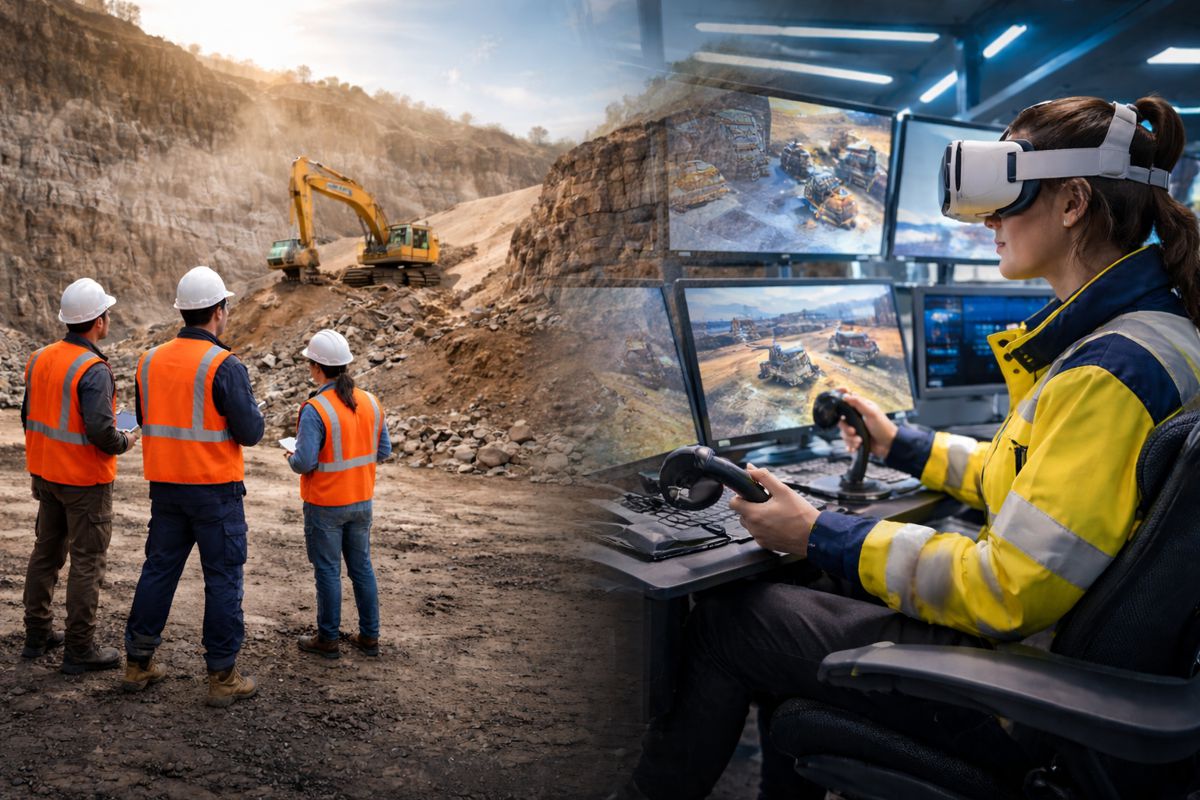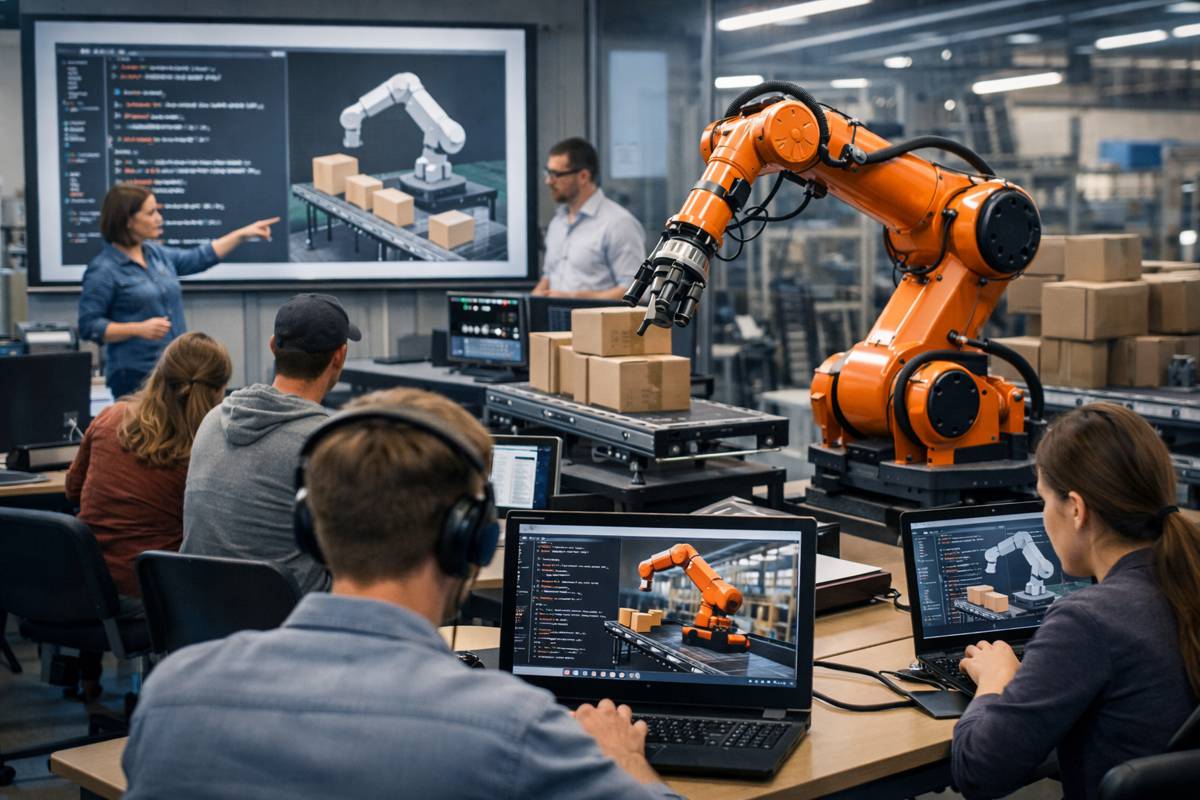Encourage ongoing learning in your Construction Team
No two construction projects are the same. There’s always something new to learn about different buildings, machines, tools, and materials. Site managers must implement a continuous training program to help employees adapt to emerging challenges.

Here are seven tips to help you foster an ongoing learning environment.
1. Set Clear Expectations
Superiors must set clear expectations for their employees in any occupation, but it’s especially important for dangerous manual labor jobs like construction. Your workers put their lives at risk every day. They need to have explicit protocols for operating equipment, navigating the work site, and responding to emergencies.
Construction projects also have strict deadlines and budgets, so you can’t afford to temper your expectations. Set the bar high and give your employees the resources to reach it. Ensure they know your site’s standards inside and out before beginning each project.
2. Show Your Appreciation
You must also reward your employees when they meet or exceed your expectations. Show your appreciation and provide a clear sense of purpose to keep them engaged. Workers who feel appreciated are more likely to stay with the company. This benefit is huge for construction and other industries with high turnover.
You can show your appreciation for your employee’s hard work in many creative ways:
- Establish a point system that rewards workers for their efforts. They can cash in their points for their favorite tasks, extra vacation time, or company-funded educational resources.
- Set a measurable goal for the team at the beginning of each project. If they meet it, give them a free lunch, gift cards to a restaurant of their choice, or another small reward.
- Celebrate milestones and achievements with them. For example, a new worker might be showing improvement on a particular piece of equipment. Give them a shoutout.
- Provide positive reinforcement throughout the project. Construction is a laborious job, so you must maintain the troops’ morale.
The most productive construction sites have supportive cultures, starting with the manager. You must give your employees their due credit to motivate them to continue making small improvements.
3. Never Stop Communicating
Nonstop communication is important in all team settings. Construction sites are always changing, so your team must constantly talk to each other throughout the project. This policy helps them stay informed about proper equipment operations and safety procedures. It also enables them to address emerging risks more quickly.
Your longest-tenured employees should be great sources of knowledge to the greenhorns on the site. You must encourage them to share their firsthand experiences if they’re not talkative. This information is invaluable in dangerous work environments where threats aren’t always apparent. Thorough communication saves lives.
As the leader, you must keep your communication lines open. Respond to your emails and texts from subordinates in a timely fashion. Hold recurring check-ins to evaluate their physical and mental health. Talk about skills they’ve learned since the last meeting and discuss new goals they want to set.
Communication goes far beyond email and text message correspondence in today’s digital world. You should also implement these tools to keep your workers connected:
- Cloud-based storage: Use Google Drive, Microsoft Office, or another cloud storage system to store all your project specs and other relevant documents in one place. Your employees can easily access these documents, allowing them to make quick and informed decisions.
- Instant messaging: Your workers should use the same instant messaging app to discuss work schedules, project challenges, and other relevant topics. This platform gives workers a chance to flesh out their insights more coherently.
Workers who constantly share information are bound to learn new things. Keep the discussion going to ensure your team never stops learning.
4. Implement New Technology
The construction industry has seen a major technological shakeup in recent years. Workers can now wear devices such as earpieces, wristbands, and helmets that track their productivity and the worksite’s safety. These wearables monitor heart rate, body temperature, muscle fatigue, and other signs that might influence their performance.
You can also attach devices such as Internet of Things (IoT) monitors to equipment to receive real-time alerts about malfunctions and routine maintenance. This data helps workers learn more about the machines they’re using. The most skilled operators save up to 12% of fuel every day because they know the equipment inside and out.
The construction industry has also introduced small robots for dangerous, labour-intensive tasks like welding, digging, and drilling. Your employees might be up to the challenge, but these bots are faster and more precise than humans. They perform each task down to the smallest measurements, leading to better-finished products.
These robots would help your workers learn to fix their logistical errors and cut back on wasteful practices. As a result, your project would have fewer leftover or defective materials and save lots of money in the long run.
AI-powered drone surveillance is another great high-tech resource that can help employees learn more about their work sites. AI security software in drones analyzes footage, detects unsafe or suspicious activity, and helps employees take more appropriate precautions.
5. Incorporate Training Into Each Day
A construction project can quickly go off the rails due to simple negligence. Avoid this problem by incorporating training into each and every day. Be strict about workplace safety and organization. There should be no loose materials, unattended equipment, or exposed safety hazards. Constantly emphasize the necessity for proper attention to detail.
Everyone on the site should learn a new lesson daily to get a more detailed and accurate picture of the project’s challenges. Daily training enables employees to learn those lessons and make fast, logical adjustments to their work habits.
Avoiding complacency is a key part of your job as the project’s leader. Keep your employees engaged and ensure they memorize safety protocols by doing random unannounced emergency drills. This will keep your workers on high alert and give them much-needed practice for when the real thing happens. An attentive and engaged workforce will constantly build on its knowledge and awareness.
6. Foster Teacher/Student Relationships
The teacher/student relationship is a straightforward recipe for ongoing learning. Pair each new hire with a hardened veteran for a few weeks and encourage them to soak up as much knowledge as possible. The teacher can relate to the beginner’s struggles and show them the hidden tricks of the industry.
This relationship also promotes ongoing learning for the teacher. It forces them to refresh themselves on the fundamentals and take their jobs more seriously. Construction workers often get so caught up in their personal tasks that they forget to consider the perspective of their co-workers. A teacher/student program helps both people see the bigger picture and learn about the industry through someone else’s point of view.
The teacher can also help the student through training, encourage them to open up to other workers, and get them involved in the team’s culture. Sometimes a young pupil just needs one stabilizing presence to bring out their full potential.
7. Keep Things Positive
Manual laborers are experts at making their jobs more fun. This ability can sometimes cause distractions, but it often leads to more learning opportunities in the long run. It’s easier to learn from your mistakes in a setting with good chemistry than in a tense environment where everyone ridicules each other for messing up.
This concept applies to all occupations, not just construction. Workers are only eager to learn if they have the proper incentive. A nice paycheck helps, but the company culture must also be supportive and positive. You must ensure your employees maintain positive attitudes if you expect them to continue learning. Lead by example and always see the bright side.

Every Day Is a Learning Experience in Construction
Every day is a natural learning experience in fast-paced industries like construction, where every minute detail matters. Your employees will continue to learn new things as long as they have clear expectations, stay engaged, use the industry’s best practices and keep things positive between each other.





























